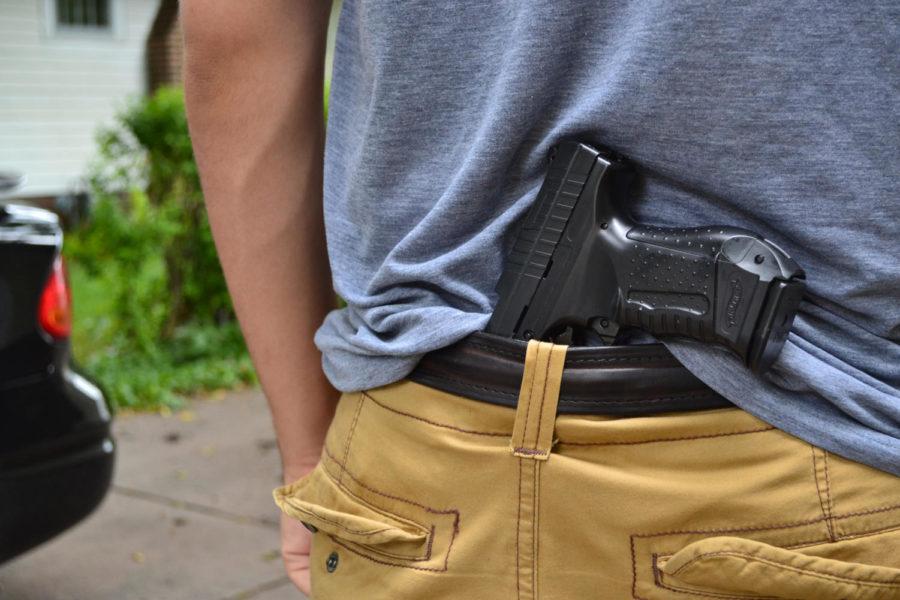Editorial: Sandy Hook lawsuit a step forward for gun reform
Illustration: Iowa State Daily
Gun control
February 25, 2016
Nine families of both children and faculty who died in the Sandy Hook Elementary School shooting, along with a teacher who survived are suing the gun manufacturer that produced the weapon used in the mass shooting in December 2012, according to NBC News. A Connecticut judge heard arguments as to whether a federal law prohibits the families’ wrongful death lawsuits on Monday and will issue a ruling in the next two months.
The families say the AR-15 model rifle, used to kill 26 students and faculty by the shooter is a semiautomatic rifle originally designed for combat and commissioned by the U.S. military. The only limit to how quickly the gun can fire is how fast a shooter can pull the trigger, according a CNN article on the hearing.
Because of a 2005 federal law, called the Protection of Lawful Commerce in Arms Act, gun makers are usually protected from lawsuits resulting from criminal use of their products. However, the exception to the law is when companies “know, or should know, that their weapons are likely to be used in a way that risks injury to others,” according to NBC news.
The families argue the way the company markets the rifle is negligent — meaning many of their advertisements, including product placement inside video games like Call of Duty, are aggressive and targeted at young men and boys. Men are most likely to commit mass shootings — around 90 percent of all murders are committed by men, they are more likely to own a firearm and more likely be trained and comfortable around them, according to CNN.
These weapons, originally meant to be used by trained military professionals for combat situations, are now being marketed and sold to civilians who would have no purpose for such a powerful weapon in everyday life — except to use them in mass shootings. The AR-15 was used in seven major shootings since 2012 — most notably in the Aurora, Colo. and San Bernardino shootings.
This lawsuit, if allowed by the judge, is a step forward for gun reform in our country. While the 2005 law preventing most lawsuits of gun companies makes sense — sheer number of cases might bog down the legal system without the law — gun makers should be held responsible when their work crosses the line into unnecessary and dangerous.
Quite frankly, it is ridiculous to think that any single lawsuit of a gun manufacturer might change the course of the mass shooting epidemic in our country. However, if successful, it may deter gun manufacturers from producing weapons seemingly only useful for mass shootings.
To completely put an end to the mass shooting epidemic, more entities, like the federal government, need to be involved in creating a solution, rather than just leaving it up to the court system. However, any change — especially one that might deter the selling of exceptionally dangerous weapons purchased legally by mass killers — is a positive one for our country.







